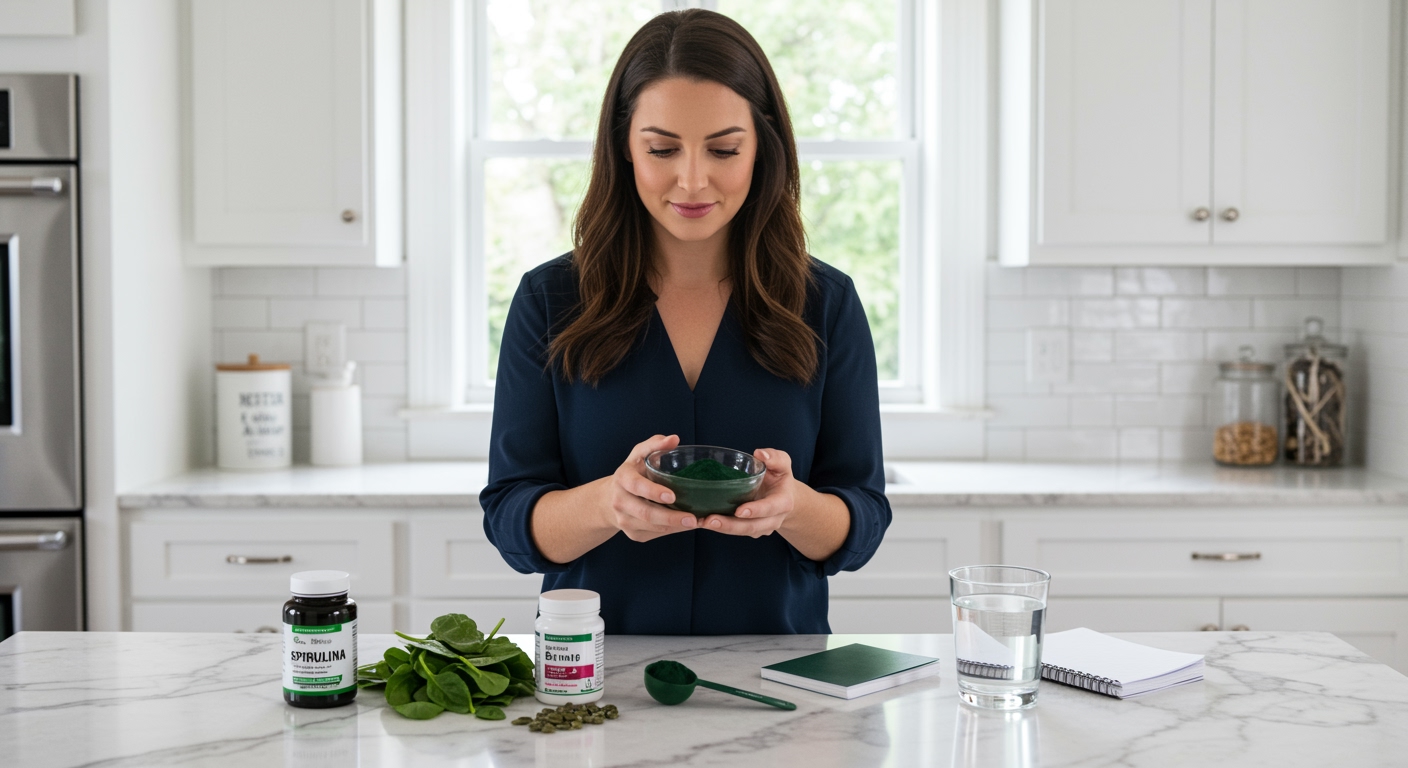✪ Key Takeaway: Beef liver is safe for PCOS iron needs when consumed in small portions of 1-2 ounces weekly due to its extremely high vitamin A content.
Introduction
You heard beef liver contains more iron than any other food on earth.
Women with PCOS often struggle with iron deficiency due to heavy periods and insulin resistance affecting nutrient absorption.
Hi, I’m Abdur, your nutrition coach and today I’m going to explain whether beef liver is truly safe for meeting your PCOS iron needs without causing harmful side effects.
Why Do Women With PCOS Need More Iron?
PCOS affects your body’s ability to absorb iron efficiently due to chronic inflammation and insulin resistance.
Heavy menstrual bleeding, a common PCOS symptom, causes significant iron loss each month.
Studies show that women with PCOS have 40% higher rates of iron deficiency anemia compared to women without the condition.
Insulin resistance reduces your cells’ ability to take up iron from your bloodstream, creating a functional iron deficiency even when blood levels appear normal.
Low iron levels worsen PCOS symptoms by increasing fatigue, brain fog, and hormonal imbalances.
✪ Fact: Women with PCOS need 18mg of iron daily, but absorb only 10-15% from plant sources compared to 25% from animal sources.
How Much Iron Does Beef Liver Actually Contain?
One ounce of beef liver contains approximately 5 milligrams of heme iron, the most easily absorbed form your body can use.
This means just 3.6 ounces of beef liver provides your entire daily iron requirement.
Heme iron from beef liver has a bioavailability rate of 25-30%, meaning your body absorbs and uses it much more efficiently than plant-based iron.
For comparison, you would need to eat 30 cups of spinach to get the same amount of absorbable iron as one small serving of beef liver.
The iron in beef liver bypasses the absorption barriers that insulin resistance creates, making it particularly valuable for PCOS management.
Unlike iron supplements that can cause digestive upset, the iron in beef liver comes with cofactors like B vitamins that enhance absorption and reduce side effects.
✪ Pro Tip: Cook beef liver with onions and bell peppers to add vitamin C, which further increases iron absorption by up to 300%.
What Are The Safety Concerns With Beef Liver?
Beef liver contains extremely high levels of vitamin A, with just 3 ounces providing over 16,000 IU or 320% of your daily needs.
Consuming too much vitamin A can lead to hypervitaminosis A, causing symptoms like nausea, dizziness, and liver damage.
Pregnant women or those trying to conceive should be especially cautious, as excess vitamin A can cause birth defects.
The cholesterol content in beef liver is also significant, with 3 ounces containing about 330mg or more than your entire daily limit.
Women with PCOS already have increased risk of cardiovascular disease, making cholesterol management particularly important.
Beef liver may also contain environmental toxins and heavy metals that accumulate in the liver tissue of animals, though grass-fed sources have lower contamination levels.
✪ Note: The safe upper limit for vitamin A is 10,000 IU daily, which means you should limit beef liver to 1-2 ounces per week maximum.
How Should Women With PCOS Consume Beef Liver Safely?
Start with just 1 ounce weekly to assess your tolerance and monitor for any adverse reactions.
Choose grass-fed, organic beef liver from reputable sources to minimize exposure to toxins and maximize nutrient quality.
Cook the liver thoroughly to an internal temperature of 160°F to eliminate potential bacterial contamination.
Pair beef liver with foods high in vitamin C like citrus fruits or bell peppers to enhance iron absorption.
Monitor your iron levels through regular blood tests, including serum ferritin, to prevent iron overload.
If you experience nausea, headaches, or fatigue after consuming beef liver, reduce the portion size or frequency of consumption.
Consider alternating beef liver with other iron-rich foods like grass-fed beef, sardines, or pumpkin seeds to diversify your nutrient intake.
✪ Pro Tip: Freeze beef liver for 48 hours before cooking to improve texture and make it more palatable for first-time consumers.
Are There Better Iron Sources For PCOS?
While beef liver provides the most concentrated iron, other animal proteins offer safer long-term options for regular consumption.
Grass-fed beef contains about 2.5mg of iron per 3-ounce serving without the vitamin A concerns of liver.
Sardines and anchovies provide both iron and omega-3 fatty acids that help reduce PCOS-related inflammation.
For plant-based options, combine iron-rich foods with vitamin C sources and avoid consuming them with calcium or caffeine which inhibit absorption.
Iron supplements may be necessary for severe deficiency, but choose bisglycinate forms that are gentler on the digestive system.
The best approach combines small amounts of beef liver weekly with other heme iron sources to meet your needs safely.
✪ Fact: Cooking in cast iron pans can increase the iron content of your meals by up to 16%, especially when cooking acidic foods like tomatoes.
The Bottom Line
Beef liver can safely meet your PCOS iron needs when consumed in small, controlled portions of 1-2 ounces weekly.
Smart nutrition means getting maximum benefits with minimum risks, not avoiding nutrient-dense foods entirely.
I would love to hear about your experience with beef liver or any questions you have about managing iron levels with PCOS in the comments below.
References
At NutritionCrown, we use quality and credible sources to ensure our content is accurate and trustworthy. Below are the sources referenced in writing this article:
- PMC: Iron deficiency anemia and PCOS
- Cleveland Clinic: Beef Liver Benefits
- Women’s Health: Iron Deficiency Anemia
- PMC: PCOS and Nutritional Management





